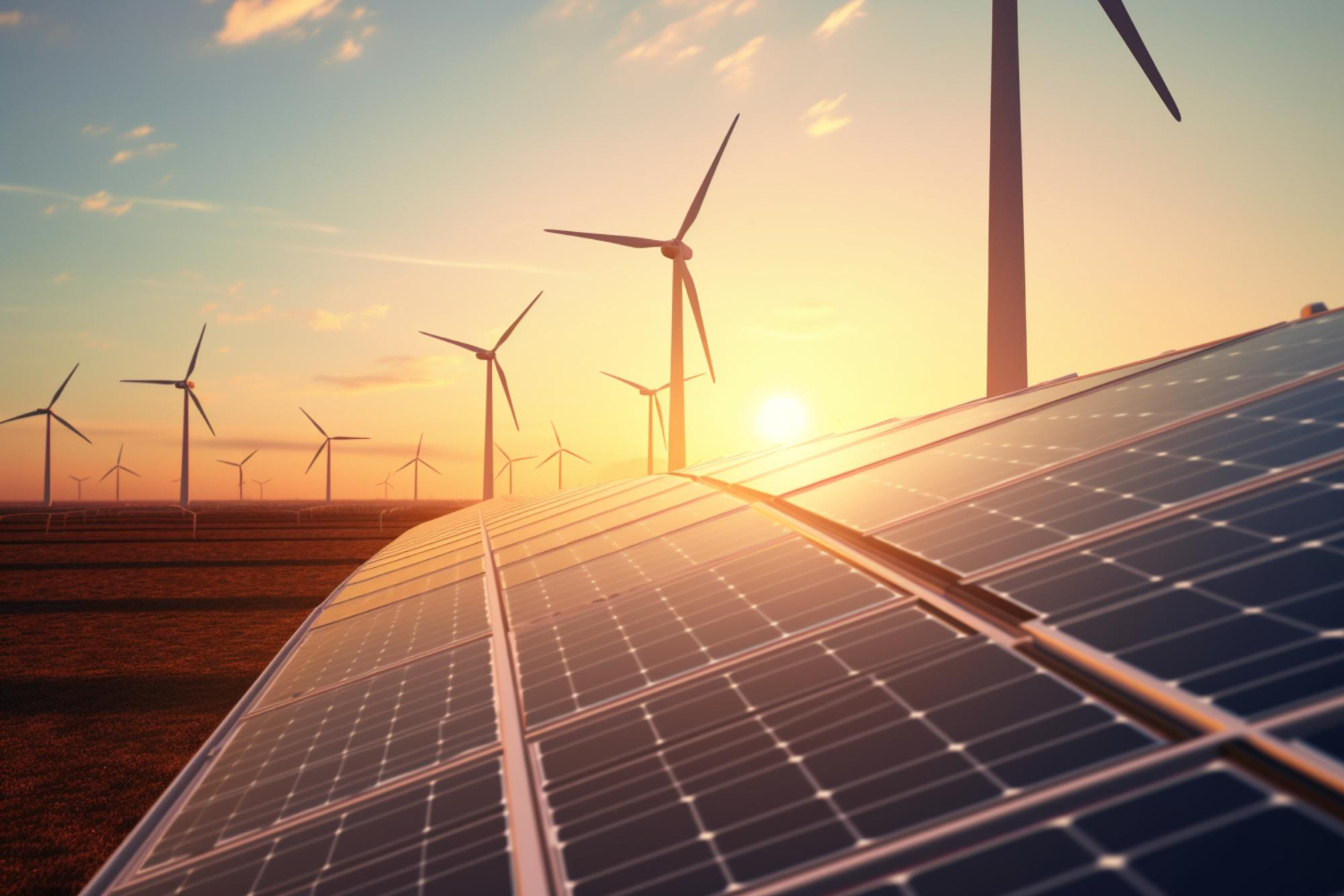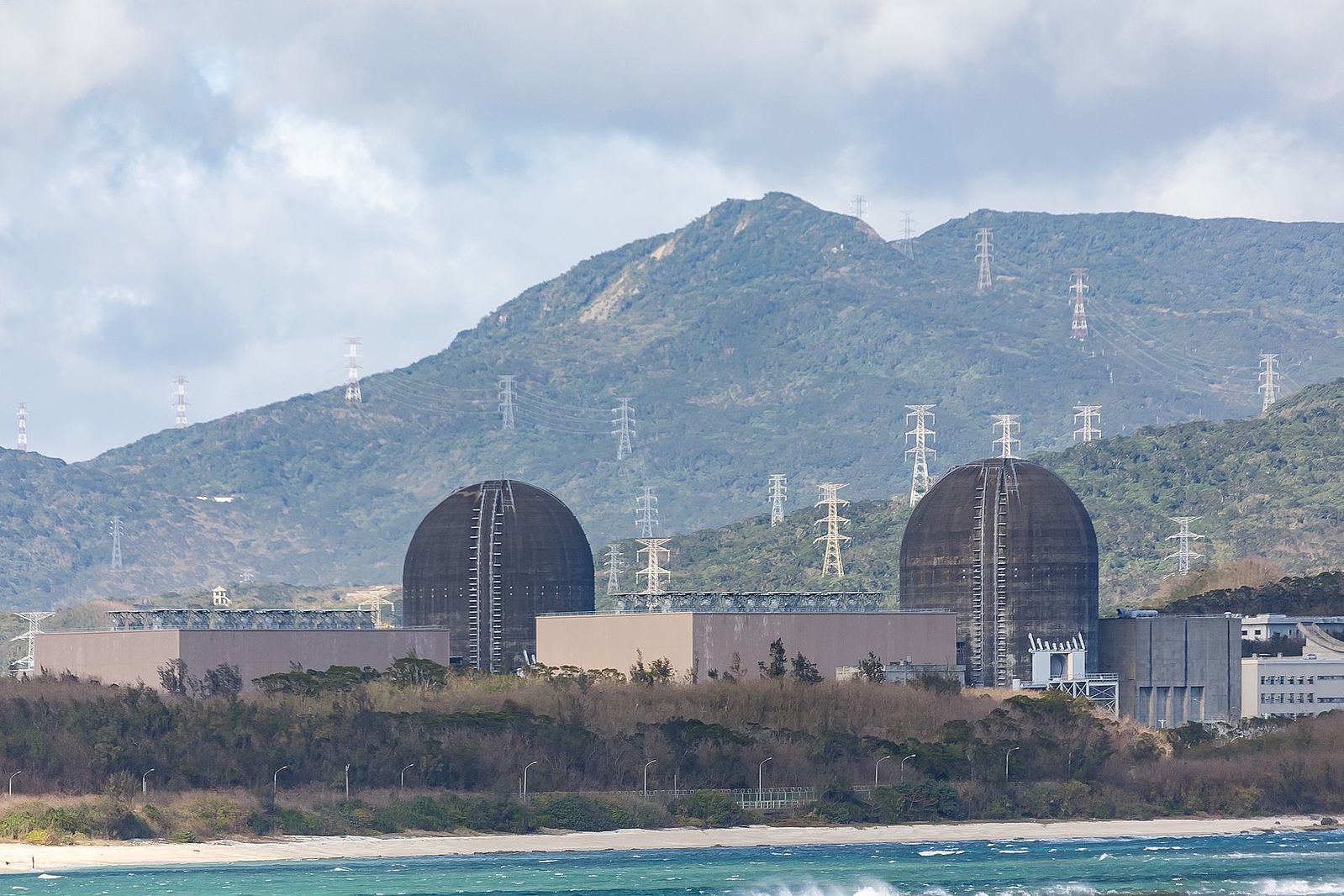
Many large enterprises in Taiwan are required to use green electricity to meet export demand. (Photo: iStock)
As the 100% renewable energy use target and carbon tariffs are established internationally, demand for green electricity is escalating. However, voices in Taiwan's business community supporting nuclear power are growing stronger, prompting the new government to re-examine its nuclear power policies.
With the inauguration of Taiwan's president-elect Lai Ching-te (賴清德) on May 20, the direction of Taiwan's energy policy has become a focus of public attention.
Recently, Tung Tzu-hsien (童子賢), the chairman of electronics manufacturer Pegatron, has frequently expressed his support for nuclear power; the prospective Minister of Economic Affairs Kuo Chih-hui (郭智輝) also mentioned during a visit to the Legislative Yuan's Economic Committee that nuclear power is a clean energy source and promised a review of Taiwan's energy policies as soon as possible after taking office.
Amid the corporate support for nuclear power, the Ministry of Economic Affairs (MOEA) issued a statement on May 16 reaffirming the government's goal for a nuclear-free homeland as well as its commitment to developing green energy.
According to MOEA's statement, the green electricity required by RE100, a renewable energy advocacy organization joined by many large domestic companies including TSMC and Foxconn, does not include nuclear power, and that demand for green electricity from the domestic supply chain is expected to peak by 2030, creating an urgent need for businesses.
As green electricity is a necessity for businesses, why do they favor nuclear power? Julia Hung, a renewable energy market researcher at RECCESSARY, an international media focusing on renewable energy and carbon market in Southeast Asia, explained that the main factors include price, carbon emissions, and urgency.
Nuclear plant extension shall be in accordance with law
Tung, also the vice chairman of the Democratic Progressive Party’s (DPP) think tank, has advocated for restarting the Second Nuclear Power Plant, extending the service life of the Third, and introducing new nuclear power plants similar to Finland's Olkiluoto 3 (OL3), a move interpreted as resolving the nuclear power controversy before Lai assumes office.
Lin Bo-feng (林伯豐), chairman of the Third Wednesday Club, a trade association comprised of Taiwanese entrepreneurs, said that non-nuclear energy policies and advocacies are outdated and should be re-examined, and the share of nuclear power should be increased to more than 30% to achieve the goal of "stable power supply, reasonable electricity prices, and net-zero emissions."
The issue of extending the service life of nuclear plants has become a major task for the new government. Some legislators have suggested to prospective Minister Kuo that the energy policy should be adjusted in a timely manner if the target share of renewable energy cannot be achieved. However, Article 23 of the Basic Environmental Act stipulates that the government must realize the goal of a nuclear-free homeland, and amendments to the law must be made if nuclear energy is to be used.
The MOEA has stated that it would "follow the law," which stipulates the duration of use and decommissioning of the country's nuclear plants, and expressed its respect for subsequent discussions on amendments to the law.

Tung Tzu-hsien has suggested the restarting of the Second Nuclear Power Plant and extension of the Third, but the MOEA said that it will continue to pursue the goal of a nuclear-free homeland. The picture shows the Hengchun Nuclear Power Plant. (Photo: Wikimedia Commons)
Why do businesses support nuclear power instead of green electricity?
Since nuclear power generation emits no carbon emissions, it is defined as clean energy by the International Energy Agency (IEA) and the U.S. Department of Energy (DOE), which includes renewable energy, fossil fuel power generation using Carbon Capture, Utilization, and Storage (CCUS) technology, nuclear energy, and battery storage.
However, the MOEA indicated that RE100 does not include nuclear power in its defined scope of green energy, which covers only solar, wind, hydro, and biomass energy.
As Taiwan's supply chain demand for green electricity is expected to peak in 2030, corporate demand should increase accordingly. However, companies are more aggressively supporting nuclear energy. Julia Hung, renewable energy market researcher at RECCESSARY, identifies three reasons behind this.
First, green electricity is more expensive for most companies. According to Hung, the current price of green electricity lacks transparency, with the average industrial prices in Taiwan ranging from TWD 3.9 to 4.2 per kWh, compared to TWD 5 to 6 per kWh for green electricity in the private sector, which is unaffordable to many small and medium-sized enterprises (SMEs).
According to the RE100 2023 Annual Disclosure Report, the proportion of renewable energy purchased through power purchase agreements (PPAs) dropped to 31% for the first time in 2022, and it is becoming more difficult for Asian companies to secure PPAs due to the growing number of members.
Second, to reduce Taiwan's overall carbon emissions from power generation. If green electricity is not accessible to companies, the commercial and industrial sectors hopes that more low-carbon energy sources (such as nuclear energy) will be included in Taiwan's power mix, which will effectively reduce the emission factor of electricity.
In other words, as long as the source of power generation is low carbon, which can reduce the emissions from companies' electricity use and the product carbon footprint, the pressure of the Carbon Border Adjustment Mechanism (CBAM) on exports to the EU can be mitigated.
Third, most companies that support nuclear power are not members of RE100 and therefore do not have an urgent need to use green electricity.
From another perspective, if Taiwan's power mix includes more low-cost nuclear power, Taiwan Power Company's power purchase costs can be reduced, thereby lowering electricity prices (traditional sources). For most companies, lower electricity costs mean more financial flexibility to purchase additional green electricity.




